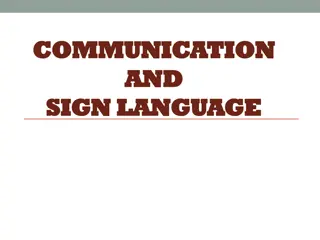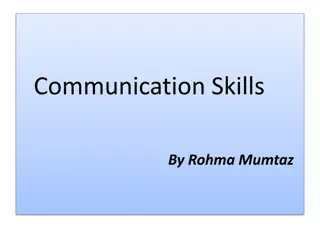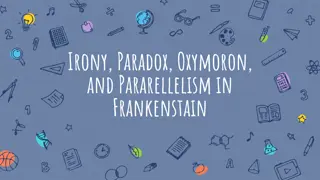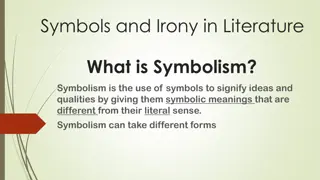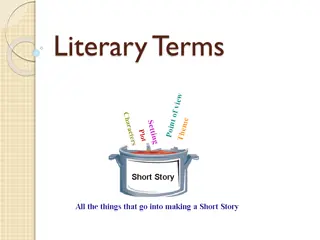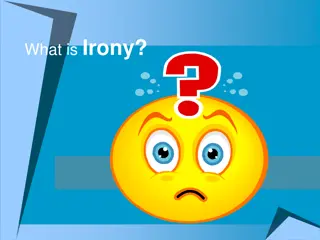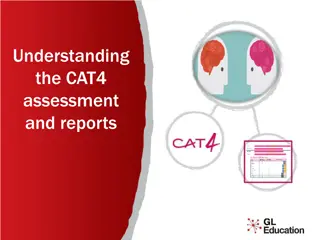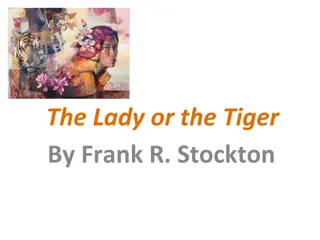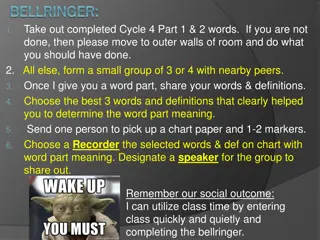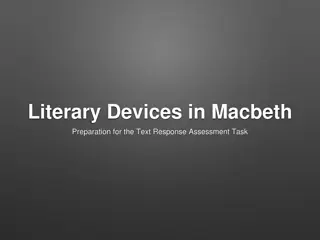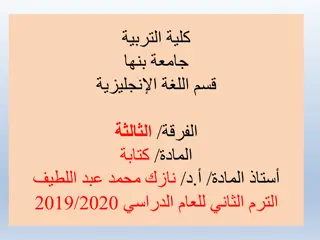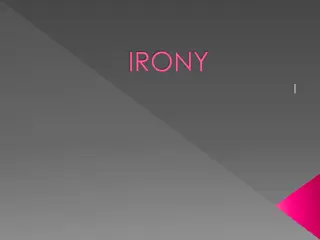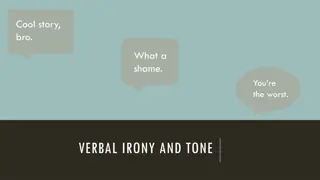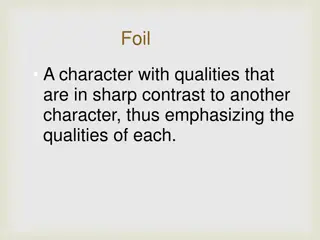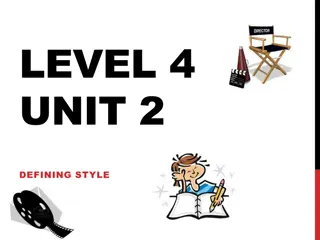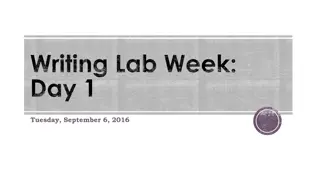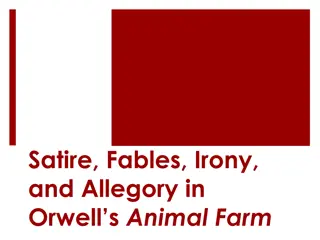Understanding Irony in Verbal, Dramatic, and Situational Contexts
Explore the nuances of verbal, dramatic, and situational irony through examples and explanations. Verbal irony involves saying something different from what is meant, often using humor like puns. Dramatic irony occurs when the audience knows something the characters don't, creating suspense. Situational irony presents unexpected outcomes contrary to expectations, highlighting contrasts between what is anticipated and what actually occurs.
Download Presentation

Please find below an Image/Link to download the presentation.
The content on the website is provided AS IS for your information and personal use only. It may not be sold, licensed, or shared on other websites without obtaining consent from the author. Download presentation by click this link. If you encounter any issues during the download, it is possible that the publisher has removed the file from their server.
E N D
Presentation Transcript
IRONY Verbal Dramatic Situational
VERBAL to mean something different from what a person actually says. it is used by a speaker intentionally. It occurs in a conversation where a person aims to be understood as meaning something different to what his or her words literally mean. PUNS are often used in verbal irony Thanks for the ticket officer you just made my day! or I can t wait to read the seven hundred page report.
STOP In pairs, think of an example of verbal irony.
DRAMATIC IRONY This type of irony is popular in works of art such as movies, books, poems and plays. It occurs when the audience is aware of something that the characters in the story are not aware of. An example of dramatic irony is in a movie where a detective does not know that the criminal responsible for the crimes in the city is his partner. The audience however is already aware of this fact and waits anxiously to know what will happen once the character finds out what they already know.
STOP In pairs, think of your own example of dramatic irony.
SITUATIONAL It involves a difference between what is expected to happen and what actually happens. EXAMPLE: when someone buys a gun to protect himself, but the same gun is used by another individual to injure him. One would expect that the gun would keep him safe, but it has actually caused him injury. There is however a difference between situation irony and coincidence or bad luck. EXAMPLE: When someone washes his car and it rains, that is just bad luck; nothing led him or her to think that it would not rain. However, when a TV weather presenter gets caught in an unexpected storm, it is ironic because he or she is expected to know the exact weather changes. Unawareness from the victim is important
STOP In groups, think of an example of situational irony. Feedback to the rest of the class.




